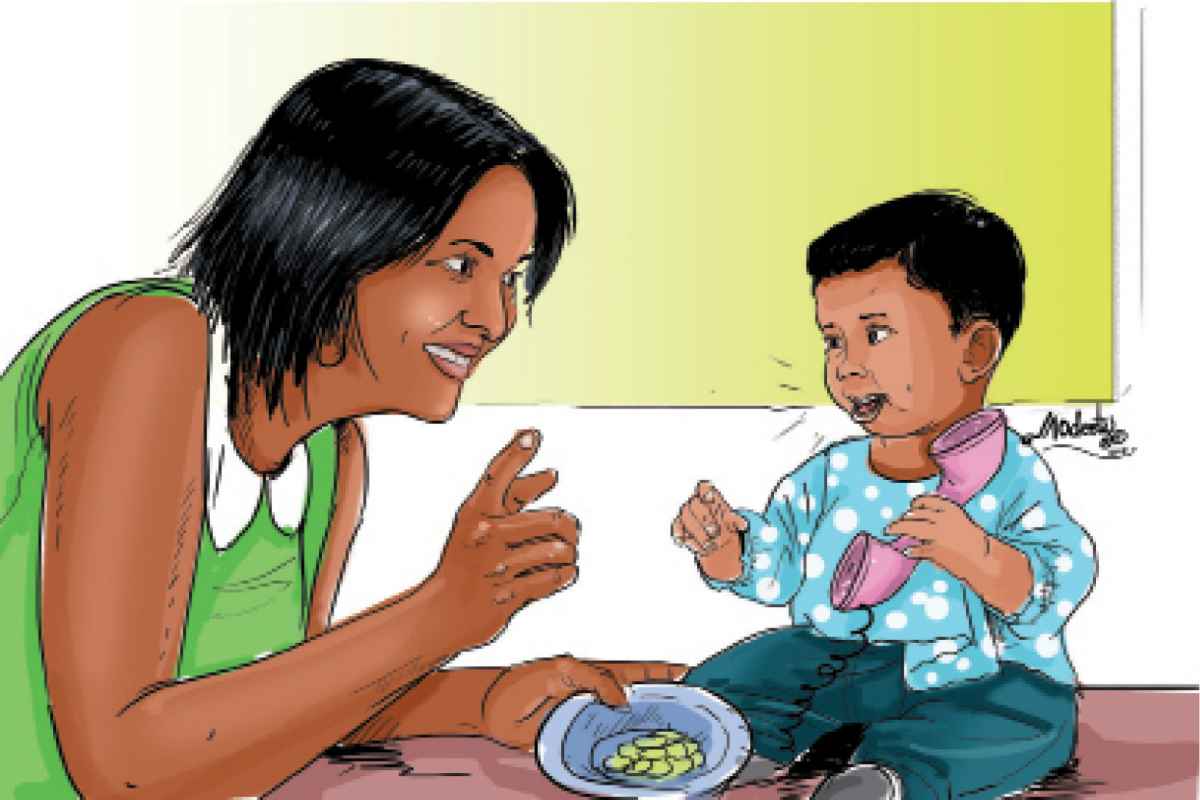Last weekend, one of my favourite Igbo programmes on Dream FM Enugu had a doctor on the show discussing fertility issues and IVF. Listeners were encouraged to dial in with questions. Amongst those who called was a man who said he had no question. He just wanted to share his joy that IVF was an option because it was better than “purchasing babies. The child is one’s biological child.” He wasn’t referring to the heinous baby trafficking business that has seen our South East play host to ‘baby farms/factories,’ – topic for another day- but to legal adoptions.
The first time I heard adoptions referred to as ‘baby buying’ was in the 1990’s in Enugu. I overheard our then family driver discussing a “shameless couple” who threw a birthday party for “a son that they bought.” Nwa ha gotere e gote. This man and his wife had, contrary to the norm, not made a secret of the fact that they had adopted a child. They were the first – and to date one of a handful of Nigerian couples I know – to be open about having children via adoption. What is more common, I have heard, is for folks to disappear for several months and then return with a baby and swear that they have been pregnant all along. For these people, it is not having a baby that isn’t biologically yours that is the issue, it is others knowing it.
Which explains the success of these clinics/ ‘farms’ which cater to couples who do not want to deal with the discomfort of a paper trail that may ‘out’ them as not being their children’s biological parents. They get their names on the birth certificates. They even get to choose what date of birth appears on the certificate. There is no way to ever trace the biological mothers, who in some cases do not consent to have their babies taken from them. In 2016, Reuters ran the story of a teenage girl, Maria, who gave birth somewhere in the South East as “a midwife repeatedly slapped her across the face.” After she gave birth, “the nurse took my child away to be washed. She never brought her back…” Later, the teenager discovered that her baby had been adopted out, and she was given N20,000.
Naija did not invent baby trafficking. Between 1950 and 1965 in McCaysville, Georgia, USA, a doctor Hicks sold babies for $800 – 1000. Many of the birth mothers were told their babies were stillborn. The couples who bought the babies knew legal adoptions were an option but they preferred to have babies handed to them at the back door of a clinic and a birth certificate listing them as parents. We did not invent it but it’s arguably become a booming business in parts of Nigeria mostly, I think , due to our attitude towards legal adoptions.
The apparent continued stigma around adoptions in Nigeria is odd because in many of our cultures, we have a very expansive view of family. I remember my hostel mate in secondary school telling us about a close uncle of hers whose relationship to the family was rooted in the fact that his grandfather had been close enough to hers as to have been a pall bearer at her grandfather’s funeral. We teach our children to call every grown up ‘uncle’ or ‘aunt.’ People with no blood ties call others ‘mommy’ or ‘daddy.’ I spoke recently to a man who said we were related (he couldn’t marry anyone from my family) and even though he was not sure what the relationship was, it doesn’t invalidate it. Furthermore, folks who go the illegal route and get babies from traffickers raise those babies as their own and no one who isn’t privy to their secret is none the wiser. So why does the stigma around legal adoptions persist?
Maybe the answer is in the way childlessness in marriages is perceived. When that caller to the programme on Dream FM praised the doctor and western medicine and science for providing options to adoptions – ‘purchasing babies’ in his own words – he articulated not only the derision with which legal adoptions is treated in certain quarters of our community, he also articulated the derision with which women (it is always women, isn’t it) who cannot have children or who do not have sons are treated. In a society that cannot perceive of anyone choosing to be childless, or a couple living a life in which they are content without a child (even if it isn’t by choice), childlessness is imagined to be a failure of sorts. That failure isn’t rectified by a baby that is known not to be biologically one’s.
In addition to which, in many of our cultures, the ability to have (biological) children determines whether or not a marriage is viable, in a manner of speaking. When a woman gives birth, especially to a son (whether it is her first or her seventh), the language is that she has “ secured her place in her husband’s home.” I am sure we have all heard stories of parents-in-law (ironically especially mothers-in-law) who interfere in their sons’ marriages when there is no offspring or the desired offspring after whatever they consider to be reasonable time. For some couples therefore, having a baby they can pass off to their families as biologically theirs is not only a matter of saving face but also of avoiding unnecessary hassle. Which really is a shame.
Folks, bikonu, your child is your child, regardless of whether or not you share the same blood. There is no shame in parenting a child you have chosen through legal adoption. That this even needs saying is sad. And to that man who called in to the programme suggesting that adopted children are ‘purchased,’ shame on you.




